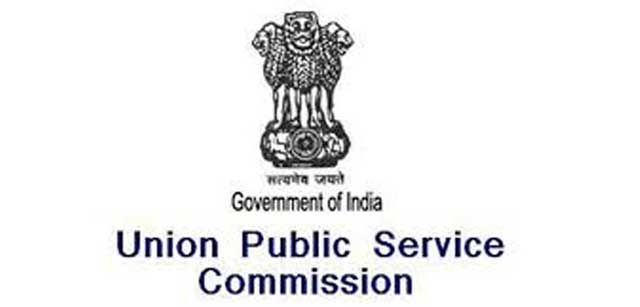
• IAS Syllabus is different for each exam as each phase analyses a candidate’s personality and aptitude.
• Syllabus and exam pattern for IAS Mains was revised in 2016 by UPSC while for Prelims exam, exam pattern and syllabus remains the same.
• This year, IAS Prelims is scheduled on June 18, 2017 while IAS Mains will be held on October 28, 2017.
• Preparation tips for each phase of IAS have been focused upon in the article along with the exam pattern.
IAS Prelims Exam Pattern
The Preliminary stage of IAS exam tests the candidates in general awareness. It is for screening purpose only, for filtering candidates for Mains exam.
• All questions are objective in nature.
• Candidates are given 4 options out of which they have to select 1.
• One fourth marks are deducted in case of a wrong answer.
• The questions asked in UPSC Prelims exam are bilingual i.e. they are given in both Hindi and English language.
IAS Mains Exam Pattern
IAS Mains is the 2nd stage in IAS exam.It is intended to assess the overall intellectual depth of understanding of candidates rather than merely the range of their information and memory. The questions in UPSC Mains Exam are set to test a candidate’s general awareness of a variety of subjects, which have relevance for a career in Civil Services.
• IAS Mains comprises of 9 papers. Out of these, 2 papers are qualifying.
• Candidates who clear Paper 1 and 2 are eligible to appear for the other 7 papers.
• Questions are both objective and subjective in nature and varies according to each paper.
• Each paper is of 250 marks.
• In the formation of IAS Merit List, marks obtained in the qualifying papers is not counted.
• The question paper is bilingual in nature.
• The total time duration of IAS Mains is 3 hours.
• Blind candidates are allotted 20 minutes extra for each paper.
IAS Interview/ Personality Test
• Candidates who successfully clear IAS Prelims and Mains are shortlisted for the interview round.
• This round comprises of 275 marks.
• Some general interest questions are asked by the candidates.
• Candidates have the option of choosing a particular language in which they wish to be interviewed.
• This interview helps to test a candidate’s mental caliber, mental alertness, critical powers of assimilation, clear and logical exposition, balance of judgment, variety and depth of interest, ability for social cohesion and leadership, intellectual and moral integrity and his personal suitability.
• Candidates need to score at least 55% marks in this round.
• A candidate securing 60% and above will most likely get a service of his choice.
• Marks obtained by a candidate in IAS Interview will be added in the Mains stage. This will form the basis of the final merit list.
Preparation Tips for IAS Exam
IAS exam is considered to be the hardest and toughest exam among others. Candidates lack the right approach and strategies to get through the exam. Some preparation tips have been provided below to help the candidates score high and the same are as follows:
• Practice mock test papers thoroughly before the exam since these help to revise your syllabus and increase your speed during the exam. By revising the attempted questions, one gets a chance to identify his mistake.
• One must cover each subject of IAS Prelims exam to crack it. A deep knowledge of the same is suggested.
• An ideal strategy is to cover all topics in detail and have concept clarity about all major topics.
• It is not recommended to give priority to any particular book or area since questions are from varied sources.
• One must not miss the easy questions from traditional subjects like Polity, History, Geography, History and Economics.
• Current affairs shall be paid attention to as they are definitely asked.
• Good knowledge of overlapping and non-overlapping areas in General Studies is also a must for Prelims and Mains since it helps you to score well.
• Read questions carefully and make sure you do not end up making silly mistakes.
• Stay calm and confident and this is possible if you go with a relaxed state of mind.
Preparation Books for IAS Exam
Some books have been recommended for IAS preparation and candidates should refer them as well. Following are the books:
| Subject | Book Name | Author/ Publisher |
| History | Ancient India | RS Sharma |
| History | Modern India | Satish Chandra Mittal |
| History | History of Modern India | Bipan Chandra |
| Polity | The Constitution of India | PM Bakshi |
| Economy | Indian Economy | Mishra and Puri |
| Environment | Environmental Studies: From Crisis to Cure | Rajagopalan |
| Environment | Environment for Civil Services Prelims and Mains | Khullar |
| Science and Technology | Science and Technology in India | TMH |
| English | High School English Grammar and Composition | Wren and Martin |
| General Studies | IAS Mains Exam General Studies (IAS Mains Exam General Studies) | Ashish Bharti (IPS) |
Source: http://exams.collegedunia.com/
Support Our Journalism
We cannot do without you.. your contribution supports unbiased journalism
IBNS is not driven by any ism- not wokeism, not racism, not skewed secularism, not hyper right-wing or left liberal ideals, nor by any hardline religious beliefs or hyper nationalism. We want to serve you good old objective news, as they are. We do not judge or preach. We let people decide for themselves. We only try to present factual and well-sourced news.







